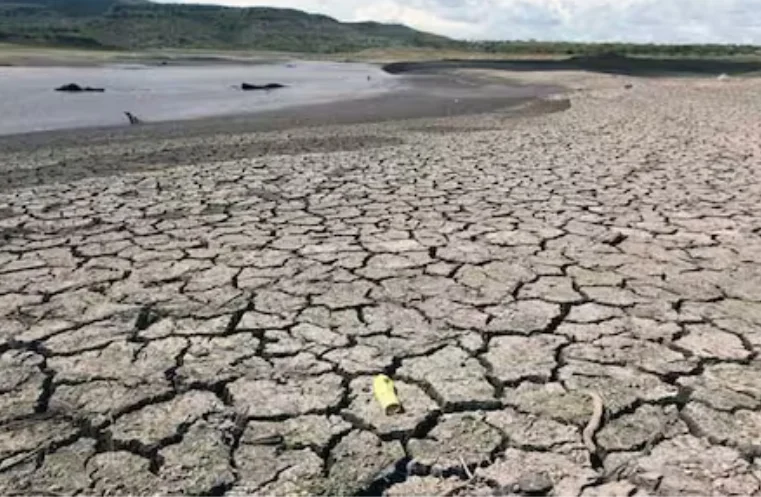Islamabad, Jan 22: The Pakistan Meteorological Department (PMD) has issued a concerning drought alert for several regions of the country, highlighting the escalating risks posed by reduced rainfall and rising temperatures.
According to reports from the state-run Associated Press of Pakistan (APP), the country’s agricultural sector, which is heavily reliant on water, is facing alarming shortages due to a prolonged decline in rainfall.
Water scarcity has been a growing concern in Pakistan, which ranks fourth globally in terms of water consumption. The agricultural sector uses a significant portion of this water, making the country particularly vulnerable to shifts in climate patterns.
Experts warn that the country could face “absolute water scarcity” by 2025 without urgent measures.
The PMD’s latest advisory, issued on December 9, shows that rainfall across Pakistan has been 40% below average from September 1, 2024, to January 15, 2025.
Sindh, Balochistan, and Punjab have suffered the most, with rainfall deficits of 52%, 45%, and 42%, respectively. These shortages worsen drought conditions, particularly in rain-fed areas. Flash droughts will further intensify the situation.
Read More:
Punjab E-Bike Scheme Phase 2 Rolls Out
Regions like Attock, Chakwal, Rawalpindi, Bhakkar, Layyah, and several others in Punjab are already experiencing mild drought conditions. Similarly, Sindh, including areas such as Ghotki, Jacobabad, and Karachi, is facing similar challenges, along with Balochistan, where regions like Ormara, Kharan, and Dalbandin are struggling.
The lack of rainfall and rising temperatures will worsen drought conditions in the coming months.
With a population of over 241 million and a growth rate of 2.55%, water availability per capita in Pakistan has significantly declined. In 1947, the country had about 5,000 cubic meters of water per person, but that number has now dwindled to just 1,000 cubic meters.
As the population continues to grow, experts warn that the situation will only worsen in the coming decades. Immediate intervention is crucial to tackle a broad spectrum of water-related challenges, including climate change, hydropower, water-sharing agreements, agriculture, and sanitation.
Pakistan’s water crisis demands urgent attention and a coordinated effort across sectors to prevent further degradation of its water resources and secure the future of its agriculture, economy, and population.









